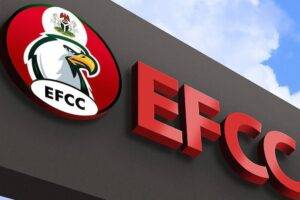Launched in 1978, the Warri Refinery is a complex conversion refinery with a nameplate distillation capacity of 6.25 million metric tons per annum (MTA), equivalent to 125,000 barrels per day (bpd). The refinery complex also includes a petrochemical plant commissioned in 1988, with production capacities of 13,000 MTA of polypropylene and 18,000 MTA of carbon black.
The facility primarily supplies petroleum products to markets in the southern and southwestern regions of Nigeria. In a bid to optimize its operations, the Nigerian National Petroleum Company Limited (NNPCL) has announced plans to hand over the operations and maintenance of the Warri Refining and Petrochemical Company to private operators. This decision is geared towards engaging reputable and credible Operations and Maintenance (O&M) companies to manage these facilities more effectively.
NNPCL’s Strategic Move to Enhance Refinery Operations
The Nigerian National Petroleum Company Limited (NNPCL) has taken a significant step towards enhancing the operations of its refineries. By handing over the operations and maintenance of the Warri Refining and Petrochemical Company and the Kaduna Refining and Petrochemical Company to private operators, NNPCL aims to leverage the expertise of reputable and credible Operations and Maintenance (O&M) companies.
This strategic move is expected to improve the efficiency and productivity of the refineries, leading to increased petroleum product output and better supply to markets in Nigeria. The decision underscores NNPCL’s commitment to optimizing its assets and ensuring the long-term sustainability of its operations.
Warri Refinery: A Critical Asset in Nigeria’s Petroleum Sector
The Warri Refinery is a critical asset in Nigeria’s petroleum sector, playing a vital role in supplying petroleum products to markets in the southern and southwestern regions of the country. With a nameplate distillation capacity of 6.25 million metric tons per annum (MTA), equivalent to 125,000 barrels per day (bpd), the refinery is a significant contributor to Nigeria’s petroleum product output.
The refinery complex also includes a petrochemical plant, which produces polypropylene and carbon black. The facility’s strategic importance makes the decision to hand over its operations and maintenance to private operators a crucial one, with the potential to impact Nigeria’s petroleum sector significantly.
Warri Refinery: Private Operators to Bring Expertise and Efficiency
The decision to engage private operators to manage the Warri Refining and Petrochemical Company and the Kaduna Refining and Petrochemical Company is expected to bring much-needed expertise and efficiency to the operations of the refineries. Reputable and credible Operations and Maintenance (O&M) companies will be responsible for managing the facilities, leveraging their expertise to optimize operations and improve productivity.
This move is expected to lead to increased petroleum product output, better supply to markets, and improved profitability for NNPCL. The engagement of private operators also underscores NNPCL’s commitment to adopting best practices in its operations and ensuring the long-term sustainability of its assets.
Warri Refinery: Implications for Nigeria’s Petroleum Sector
The decision to hand over the operations and maintenance of the Warri Refining and Petrochemical Company and the Kaduna Refining and Petrochemical Company to private operators has significant implications for Nigeria’s petroleum sector. The move is expected to lead to improved efficiency and productivity in the refineries, increased petroleum product output, and better supply to markets.
However, it also raises questions about the role of NNPCL in the petroleum sector and the potential impact on employment and local communities. As NNPCL navigates this significant change, it must carefully consider the implications for all stakeholders and ensure that the decision aligns with its commitment to optimizing its assets and ensuring the long-term sustainability of its operations.
NNPCL’s Commitment to Transparency and Accountability
The Nigerian National Petroleum Company Limited (NNPCL) has demonstrated its commitment to transparency and accountability by announcing its decision to hand over the operations and maintenance of the Warri Refining and Petrochemical Company and the Kaduna Refining and Petrochemical Company to private operators. This move underscores NNPCL’s willingness to adopt best practices in its operations and ensure the long-term sustainability of its assets.
As NNPCL engages private operators to manage the refineries, it must ensure that the process is transparent, and the selected operators are reputable and credible. This will help maintain stakeholder trust and confidence in NNPCL’s operations.
Table of Contents
Discover more from OGM News NG
Subscribe to get the latest posts sent to your email.














